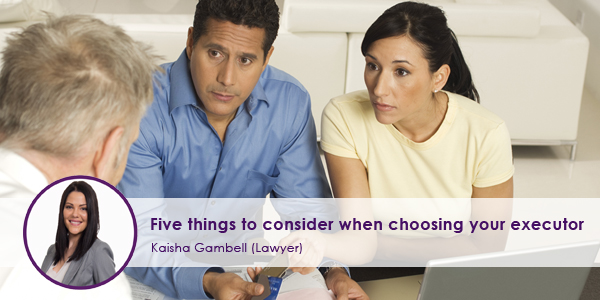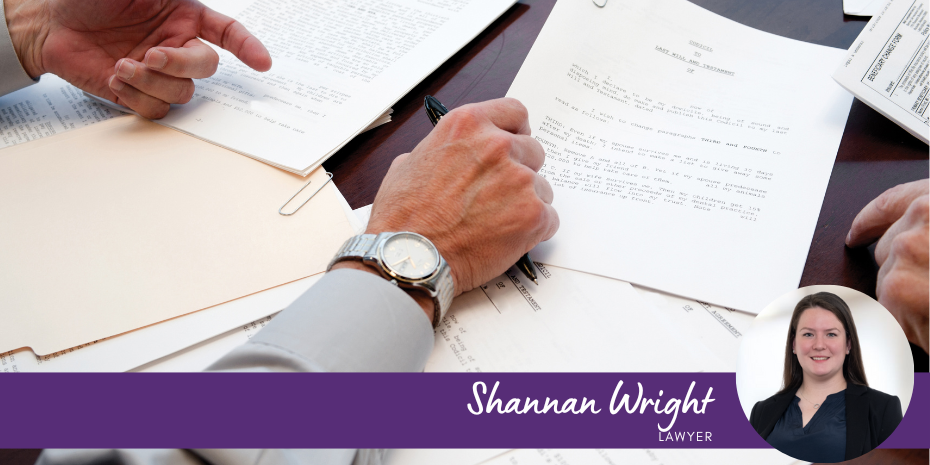The person who you appoint as the executor of your will has many responsibilities once you have passed away. Some of these responsibilities include:
- Arranging your funeral
- Locating the beneficiaries in your will
- Applying to the Court for the authority to administer your estate
- Collecting and selling the assets of your estate
- Paying any debts that you may have at the time of your death
- Distributing your estate to the beneficiaries
- Dealing with any conflicts or challenges to your will or estate
Therefore, your choice of executor is a very important decision. Before you rush to nominate your spouse or your children, it makes sense to carefully consider who would be the person (or persons) best suited for the job.
Here are five things you should consider when making your decision:
1. Is the person trustworthy?
Your executor needs to be a person who you can trust to follow your instructions and carry out the wishes of your will. You should be comfortable knowing that the person you have chosen is an honest, trustworthy and ethical person.
2. Does the person live in New South Wales?
If you own property in New South Wales, your estate will need to be settled here. The Supreme Court of New South Wales will only give a grant of probate to an executor who is able to provide an address that is in New South Wales. Appointing an executor who is local will also make it easier for your executor to sign the required paperwork in person, keep an eye on your home and assets and eventually sell or transfer them to your beneficiaries.
3. Is the person organised?
Your executor becomes responsible for managing your entire estate when you pass away. Appointing a person who is good at paperwork and has experience in keeping proper accounts and records would be an ideal choice. Your executor should also be someone who will have the time to deal with your estate.
4. Will the person be able to deal with any family conflict?
Sometimes the executor may need to deal with any conflict or disputes that could arise between your beneficiaries or if anyone makes a claim against your estate. Your executor should be someone who you know will be able to handle these difficult times, be able to act impartial and be able to make decisions in the best interests of the estate and your beneficiaries.
5. Is the person happy to be your executor?
Finally, you should make sure that the person you have in mind would be happy to accept the role. It is important for your executor to understand your wishes and what you expect of them as your executor. Otherwise, if your executor only finds out they’ve been appointed as your executor after your death, they may not be willing to accept the role and may apply to the Court to renounce that position.
If after you’ve considered these points and you do not feel as if you know anyone who could be your executor, you may like to consider appointing an independent professional executor such as a trustee company or your solicitor. Trustee companies and solicitors will be able to act as your executor in an efficient and impartial way, but do keep in mind that they will charge a fee to your estate for this service.
If you would like further information on the responsibilities of an executor or you would like to set up a new will to appoint or change your executor, contact our Wills & Estates Law team for further advice!
For further information contact:
Kaisha Gambell
Lawyer
kaisha@couttslegal.com.au
02 4647 7447



